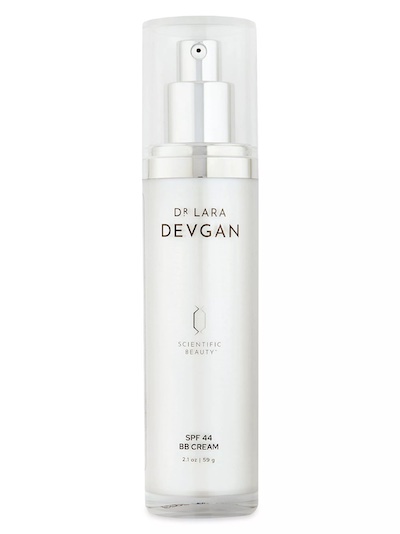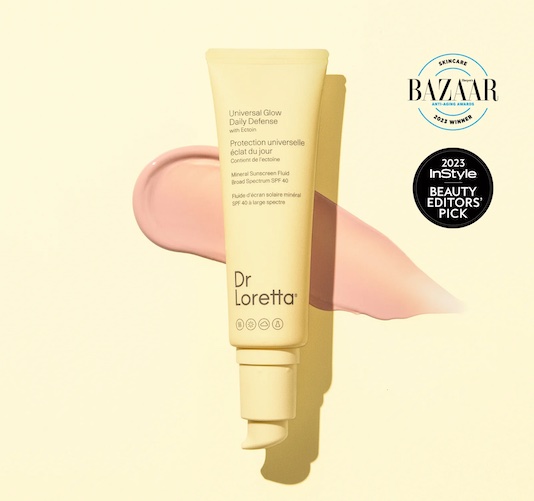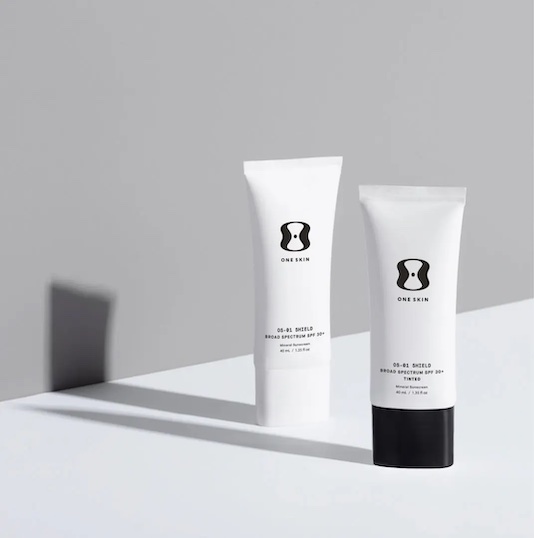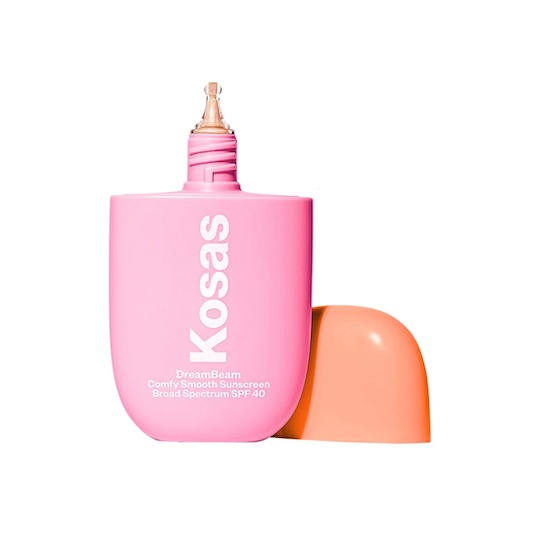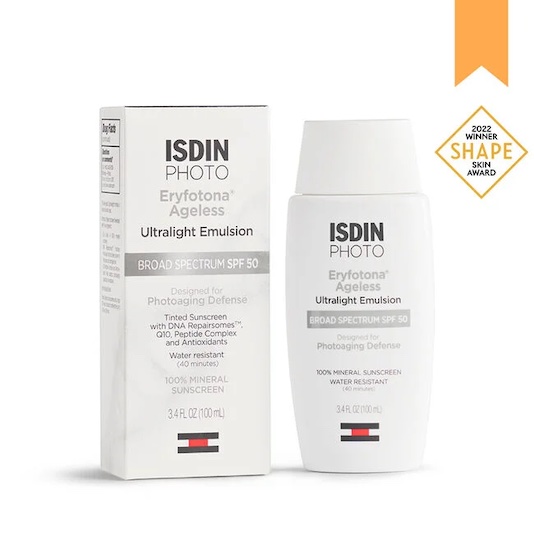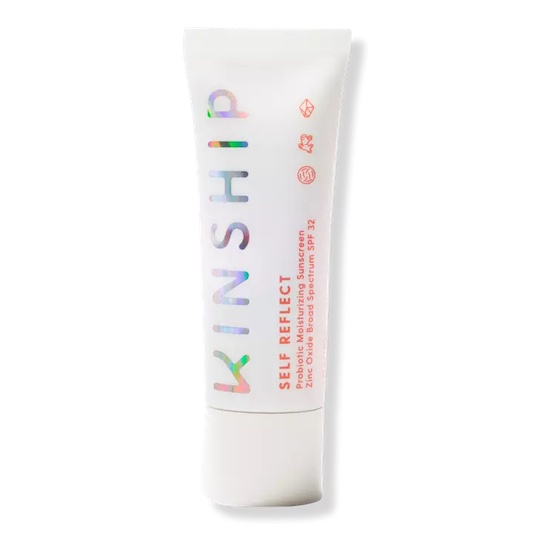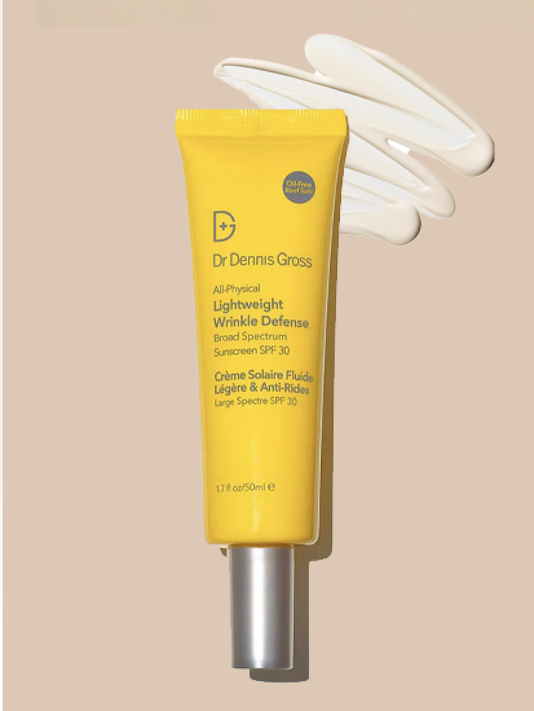Mineral or Chemical SPF? Why One Dermatologist Only Wears Mineral-Based Sunblocks
March 18, 2024
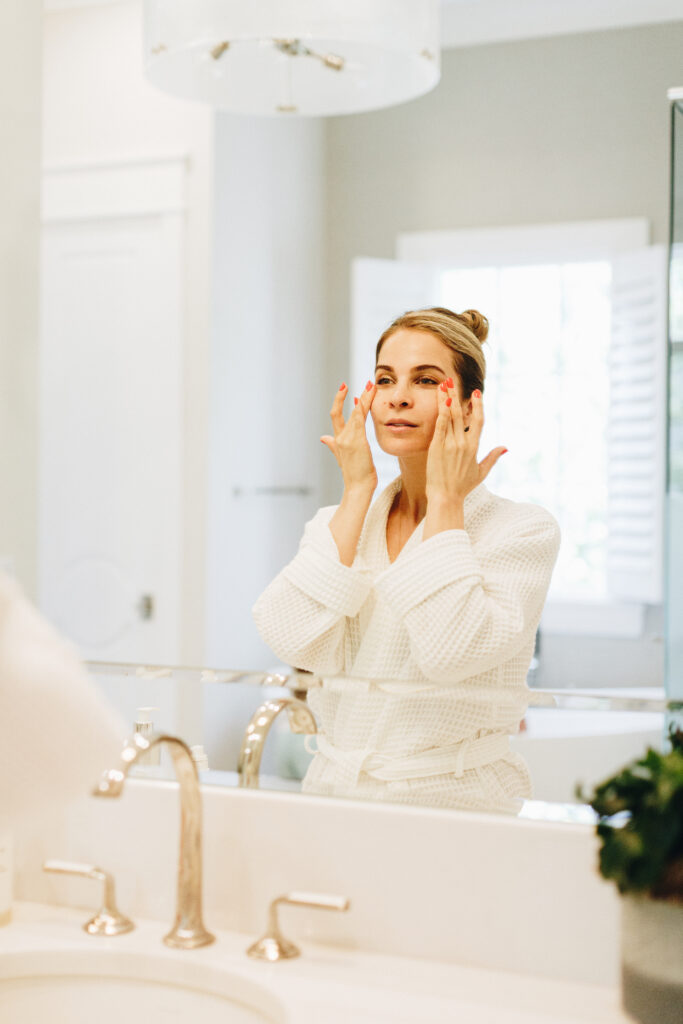
In the world of skincare, some people feel like they have to pick a side: chemical sunscreens or mineral-based sunblocks?
I’ve always been open about my penchant for mineral blockers–sunblocks that contain zinc oxide or titanium dioxide as their active sun-blocking ingredients rather than chemical sunscreens that use ingredients like octisalate, homosalate, avobenzone, or octinoxate–because they don’t irritate my skin. Today, I wanted to bring this up because a trusted WGT expert has weighed in with advice on the question many people have: Should I use a mineral or chemical SPF?
Should You Use a Mineral or Chemical SPF?
Many people choose SPF based on how it feels on their skin. A plus side for chemical screens is that they’re nearly always invisible–blending right into the skin, allowing for easy makeup application and no white cast.
I certainly love some chemical formulations, but most of the time, I’m going mineral. And there are a couple reasons.
First, mineral sunblocks tend to be gentler on my skin. There have been times–especially when I’m working out–when chemical sunscreens made my face feel like it was on fire, and super red.
But there’s another reason that’s always in the back of my mind, too–a study I read summarizing an FDA report. It showed that four popular chemical sunscreen ingredients were absorbed into the bloodstream after repeated use, with levels remaining high in the bloodstream even weeks after application.
Now, it’s important to mention that there have been no studies proving that these chemicals cause adverse health effects or hormone disruption. But the fact that they were detectable at all just kind of freaks me out. If I’m making an effort to do other small things to protect my health–avoiding plastics, drinking matcha, etc.–this feels like a small decision I can make that at the very least soothes my anxious mind.
Now, a caveat! I still use chemical sunscreens sometimes. So don’t take this post as advice on what’s best for you. As always, I’m just sharing my opinion on what works best for me.
But if you’re also debating the question of mineral versus chemical, I thought it would be valuable to hear from a doctor and board-certified dermatologist, too.
A Dermatologist’s Advice on Mineral Sunblocks Versus Chemical Sunscreens

Dr. Heather Rogers, who’s been a guest on the podcast twice, says she chooses mineral blocks over chemical screens, and here’s why:
“Most drugstore sunscreens contain a combination of chemicals that provide reasonable UVA and UVB protection. While using these products is definitely better than not using anything, here’s the rub: These are chemicals our body absorbs.
We can measure their levels in our blood and urine. Fortunately, they are well-studied and labeled by the FDA as non-toxic. And, despite the reports, they do not cause cancer and have not been shown to cause hormone disruption in humans. However, they accumulate in our bodies, and I certainly would like to minimize the accumulation of any unneeded chemicals in anyone.
“Plus, some of these compounds aren’t good for our environment, and they are a common cause of irritation both of the skin and eyes.”
Listen to Dr. Rogers on We Gotta Talk below!
Dr. Rogers adds that she picks products with zinc oxide for sun protection.
“Zinc provides the most comprehensive protection against Ultraviolet B (UVB) rays that cause sunburns and Ultraviolet A (UVA) rays that cause brown spots and wrinkles. It has a reputation for being thick and white, making people look ghost-like, but an increasing number of sunscreens with zinc are becoming more cosmetically elegant. Unlike the chemical sunscreen ingredients discussed above, zinc is a naturally occurring mineral that is not absorbed by your body. I recommend products with at least 10% zinc oxide.”
Of course, I put together a list of some of my favorites. Here are formulas that I go back to time and time again!
My picks for SPF with zinc oxide:
WE GOTTA SHOP
Here are some products mentioned above
Check out my interviews with Dr. Heather Rogers below!
© 2022 WGT Designed by leche studio
PRIVACY & TERMS
CONNECT
NAVIGATE
Home
Blog
Work With Me
More From Us
Want to be the first to get the latest updates and news?
About
Podcast
Contact
